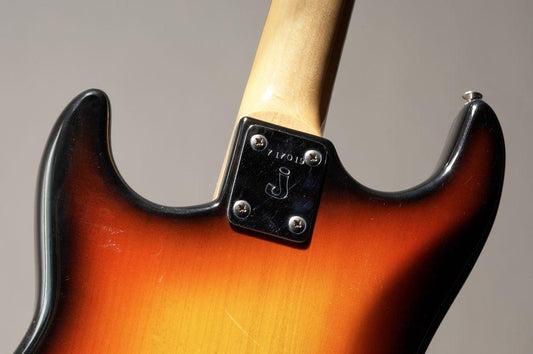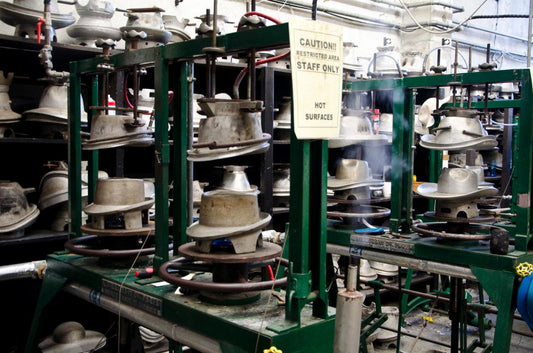In the 1960s, many kiwi pop guitarists owned one of these – a Jansen electric guitar. Jansens were the first solid-body electric guitars to be mass-produced in this country, and they became firm favourites with our musicians.
The Jansen Guitar Company was the brainchild of Bruce Eady. He’d grown up on the sounds of the 1940s and 1950s, when guitars were just beginning to influence popular music here. Country and western singers like Tex Morton, Johnny Cooper and the Range Raiders, and the Tumbleweeds, were local stars. The Hawaiian sound was big, too. It used ukeleles, and Hawaiian-invented guitars called lap steels, which many musicians made for themselves.
For Bruce Eady’s family, music was business. His grandfather Lewis and great-uncle Arthur ran rival establishments in Auckland, selling musical instruments. His father later ran a piano firm in downtown Auckland. Eady worked there in the mid 1950s, then trained as radar mechanic with the navy, before going into business on his own, repairing radios and guitars.
At that time, there were few new guitars on the market. Import licences were almost non-existent, and the American models were expensive. Most of the guitars that came in to this country were German made, and were brought over by immigrants from Europe. Eady fixed up second-hand guitars, and resold them. He soon saw a gap in the market for affordable but high-quality new electric guitars. He decided he would create a business that would fill that gap – but first he needed an expert guitar maker.
In 1958, Eady saw an electrostatic lap steel guitar made by Nelson man Ray Simpson. Eady hired him the following year.
Many years earlier, as a seventeen year-old radio shop apprentice, Simpson had built his first square-shaped electric lap steel guitar by wiring up a U-shaped pick-up from a car magneto. In 1956 he began building cast-aluminium-body guitars, modelled on a 1940s steel guitar popularised by Hawaiian musician Sol Hoopii.
After being hired by Eady, Simpson moved north to Auckland. The pair started out in a small factory in Mt Wellington, and called their company Jansen. There was no significance to the name; it was just a sound they liked. Eady says, ‘I wanted a name with two syllables like Fender or Gibson, something international, both European and American.’
They modelled their guitars on the American Fender brand. The first, the Jazzman, was directly based on the Fender Jazzmaster series. The guitar necks were made from Nelson white birch that Simpson had specially shipped to him. The bodies were made out of old kauri beams from demolished houses.
With the rise of the Beatles, guitars became all the rage, and Jansen took off. The company was soon producing 40 or 50 guitars a month. Their Invader model, made in 1964 and based on the famous Fender Stratocaster, was a huge success. It was named after local hit band Ray Columbus and the Invaders. For several years in New Zealand, this was the guitar to have. It outsold not only the Stratocaster but all other imported brands.
Although Jansen guitars were often modelled on overseas examples, the company introduced many of their own innovations, especially in the design of the pick-up.
Jansen expanded and changed. The company moved to a bigger factory where eight people worked on assembling guitars. They exported their product to Australia and to the Pacific Islands, and began to diversify — making organs, amplifiers and speaker boxes.
Already noted for their innovative pick-up design, Jansen staff put a lot of effort into studying ‘waveforms’. Perhaps the best Jansen pick-ups were designed by Paul Crowther, their organ designer, who later became drummer in the famous kiwi band Split Enz.
In the late 1970s competition from overseas, especially Japan, was heating up, and Jansen went out of production.
Ray Simpson had left some years earlier to set up his own guitar making business. Bruce Eady went on to open a busy music and amplifier shop in Auckland’s Newmarket. And as for the guitars his company made, they’ve been scattered around the world by travelling kiwi musicians.
Jansens continue to be highly sought after both locally and internationally – as collectors’ items.
The Jansen guitar reissues are now in stock at Mood!
Browse our range of Jansen guitars.
*Information sourced from tepapa.govt.nz




